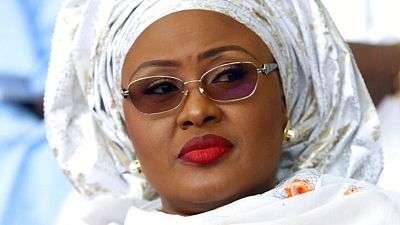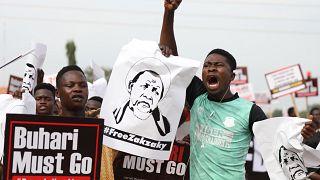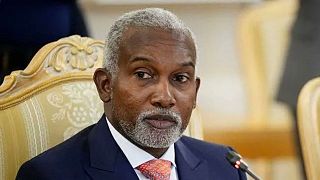Nigeria
A Nigerian student has appeared before a criminal court in Abuja on charges of defaming the head of the state's wife over a tweet deemed offensive to her, his lawyer said on Thursday.
According to court documents consulted by AFP, Aminu Adamu, born in 1998 and a student at the Federal University of Dutse, in northern Nigeria, was arrested on November 18 and transferred to Abuja, five months after posting the message in which he commented on the physical appearance of the First Lady, Aisha Buhari, and criticized her for "eating the money of the poor.
His arrest, strongly condemned by Amnesty International, followed a preliminary investigation by the police after the filing of a complaint by the wife of President Muhammadu Buhari, a judicial source revealed.
The young man "was brought before a Federal Capital Territory (FCT) Magistrate's Court on Tuesday," his lawyer Chijioke Agu told AFP by telephone. "The charge is defamation," he said.
According to the Nigerian criminal code, Mr. Adamu faces up to two years in prison.
The hearing has been adjourned to January 30, Agu said, adding that he had applied for bail for his client, who is being held in Suleja prison, northwest of Abuja.
According to court documents seen by AFP, the student admitted posting the offending message on Twitter, which included a photo of Mrs. Buhari and a comment in Hausa, the most widely spoken language in northern Nigeria.
In a statement released on Sunday, Amnesty International said Adamu's family and relatives said he was "subjected to beatings, torture and other ill-treatment.
Amnesty also denounced an "illegal arrest" and called for his "immediate" and "unconditional" release.
On Thursday, one of Nigeria's most significant student associations (Nans) called on students to demonstrate nationwide next Monday in support of Mr. Adamu. "Our demonstrations must continue until his unconditional release," Nans wrote in a statement.
Under the constitution, Buhari must leave office in 2023 after serving two terms as Nigeria's president. In recent years, human rights organizations have increased their criticism of the government, which they accuse of repeated attacks on freedom of expression and opinion.
Many opponents and journalists have been arrested, demonstrations have been bloodily suppressed and the social network Twitter was banned for seven months in 2021.














Go to video
U.S. slashes visa duration for some African nationals amid policy shift
02:05
WAFCON: Super Falcons fans optimistic about the team's performance
Go to video
US deports eight men to South Sudan after legal battle
01:06
Brazil launches major security operation ahead of BRICS Summit
01:30
Nigerian singer Tems launches Leading Vibe Initiative to support women in music
Go to video
Zimbabwe court rejects opposition bid to block Gukurahundi massacre hearings